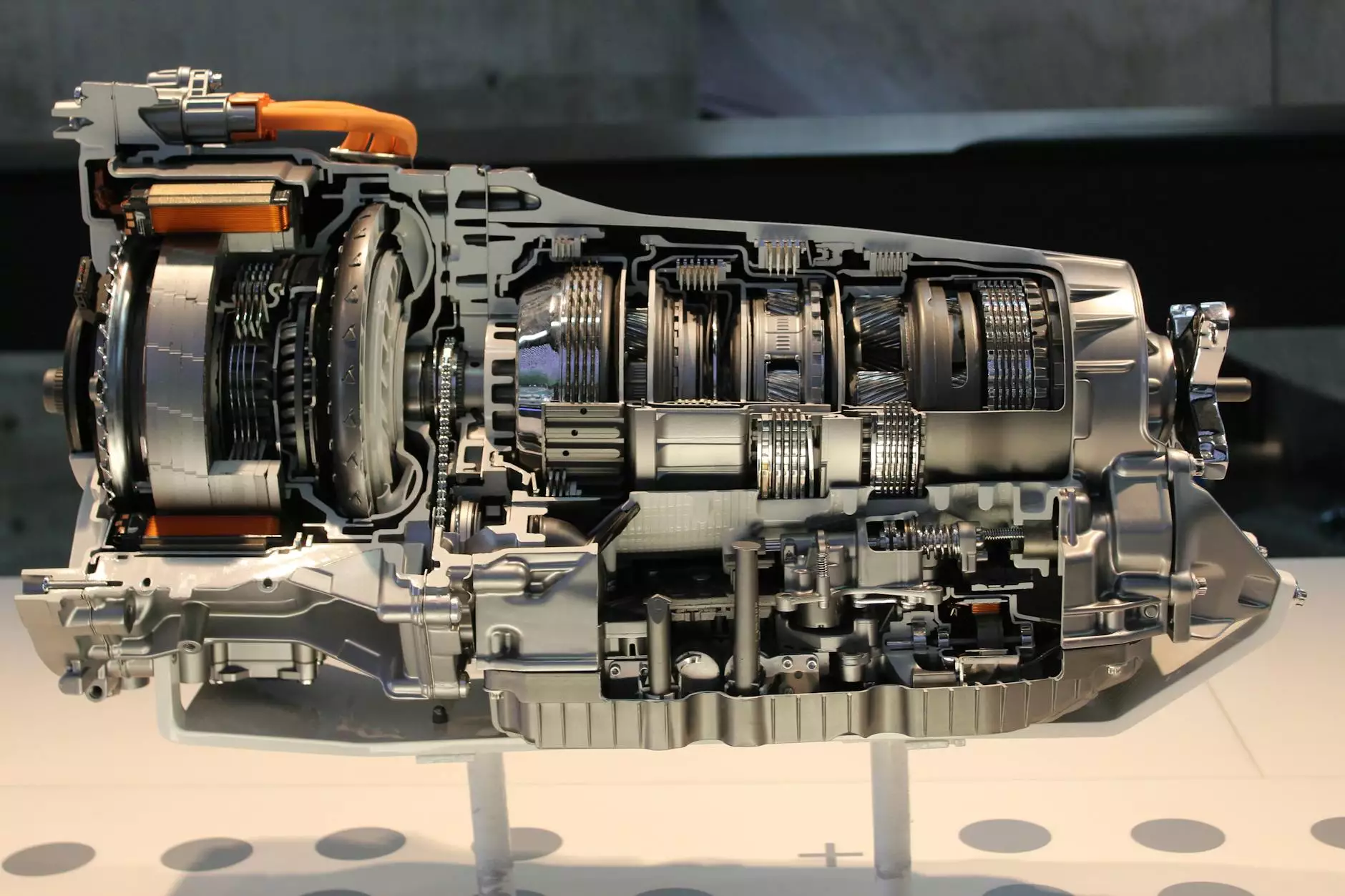Understanding Transmission Torque Converters: Powering Your Drive

In the world of automotive engineering, transmission torque converters play a critical role in delivering power from the engine to the drivetrain. This article delves deep into the fundamentals of torque converters, their functioning, and their significance in modern vehicles. Whether you're a car enthusiast or a casual driver, grasping the intricacies of torque converters can enhance your understanding of automotive performance.
What is a Transmission Torque Converter?
A transmission torque converter is a fluid coupling mechanism that transfers rotating power from the engine to the transmission of an automobile. It serves a similar role as a mechanical clutch but does so automatically, allowing for a smoother transmission of power. Essentially, it converts the engine’s power into hydraulic energy to propel the vehicle.
How Does a Torque Converter Work?
The inner workings of a transmission torque converter may seem complex, but they can be understood through its primary components and operating principles:
Components of a Torque Converter
- Impeller (Pump): Directly connected to the engine, it spins and creates hydraulic pressure.
- Turbine: Receives fluid from the impeller, causing it to rotate and transmit power to the transmission.
- Stator: Redirects the fluid returning from the turbine, increasing efficiency and performance.
- Torque Converter Fluid: A special fluid that helps transfer power and dissipate heat.
Operating Principles
The operation of a torque converter can be summarized as follows:
- The engine drives the impeller, which creates a whirlpool effect in the transmission fluid.
- The fluid flows into the turbine, transferring energy to it and causing rotation.
- As the turbine spins, it drives the transmission input shaft.
- The fluid returns to the impeller, with the stator helping to guide the flow efficiently.
The Importance of Torque Converters in Automotive Performance
Torque converters are essential for achieving stability, efficiency, and comfort in driving. Here’s why:
Smooth Gear Shifts
One of the primary benefits of a transmission torque converter is its ability to provide smoother gear shifts. Unlike traditional manual systems, torque converters manage to change gear ratios seamlessly, which enhances the driving experience.
Enhanced Fuel Efficiency
A well-functioning torque converter contributes to the overall fuel efficiency of a vehicle. By optimizing the transfer of power, it ensures that less energy is wasted, allowing for better mileage.
Increased Torque Multiplication
The torque multiplication feature of the torque converter is invaluable, especially during acceleration. This allows vehicles to draw on excess torque when needed, providing that extra push when merging onto highways or climbing hills.
Identifying Issues with Your Torque Converter
While torque converters are generally reliable components, they can develop issues over time. Recognizing signs of trouble early can save time and expense. Here are some common symptoms:
- Slipping: If your engine revs higher without an increase in speed, the torque converter may be slipping.
- Overheating: An overheating transmission can indicate poor fluid flow due to torque converter failure.
- Unusual Noises: Grinding or shuddering noises often signal mechanical problems with the torque converter.
- Check Engine Light: If this light illuminates, a diagnostic check can reveal torque converter issues.
Choosing the Right Transmission Torque Converter for Your Vehicle
When the time comes to replace or upgrade your torque converter, several factors must be considered:
Vehicle Type
The type of vehicle you own (sedan, SUV, or performance car) will dictate the kind of torque converter you require. Not all converters are suited for every application.
Performance Goals
Understand your driving style and performance aspirations. Some torque converters are designed for a balance of performance and comfort, while others are aimed at maximizing power output.
Quality and Brand Reputation
Investing in a high-quality torque converter from a reputable brand, such as those found on shenghaiautoparts.com, ensures reliability and performance. Always opt for products that meet or exceed OEM specifications.
Cost Considerations
While price is a factor, it should not be the only consideration. Weigh the benefits of a more expensive, high-performance torque converter against a budget model to determine what aligns with your needs.
Maintenance Tips for Torque Converters
Maintaining your torque converter is vital for the longevity and performance of your vehicle. Here are some maintenance tips:
- Regular Fluid Changes: Transmission fluid should be changed according to the manufacturer's recommendations to prevent overheating and slippage.
- Monitor Fluid Levels: Always ensure proper fluid level to avoid damage from insufficient lubrication.
- Address Warning Signs: If you notice any abnormal sounds or performance issues, consult a professional mechanic without delay.
Conclusion
In summary, the transmission torque converter is an indispensable component of any modern vehicle. Its ability to provide seamless power transfer, enhance fuel efficiency, and support torque multiplication is vital for the performance and comfort of your ride. By understanding how these converters work, their benefits, and the importance of maintenance, you can ensure that your vehicle runs smoothly for years to come.
For all your auto parts needs, visit shenghaiautoparts.com to discover high-quality components that keep your vehicle performing at its peak.









